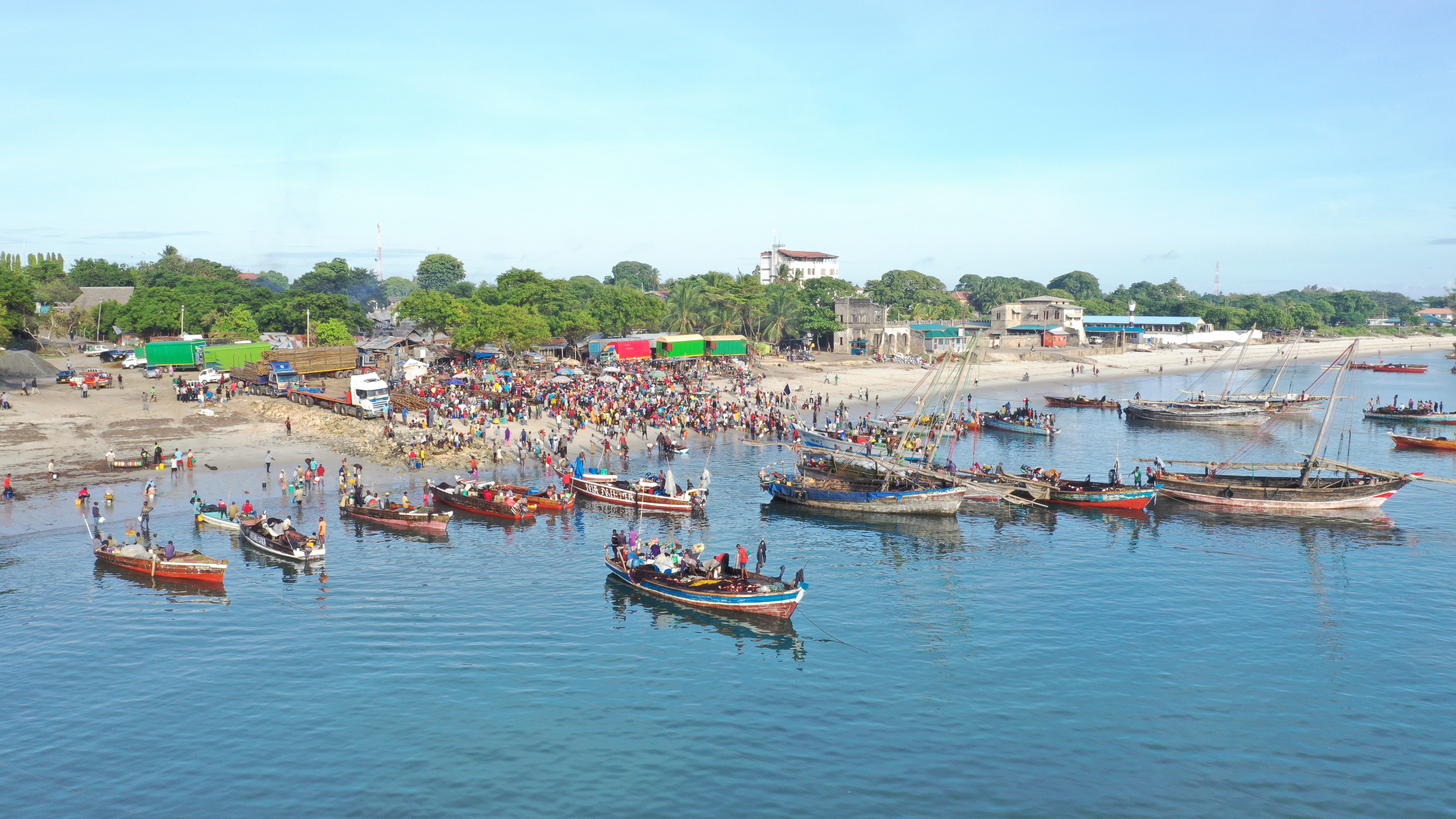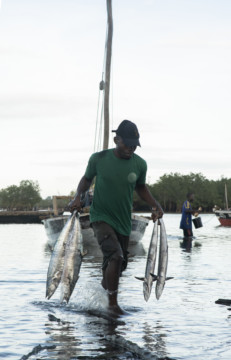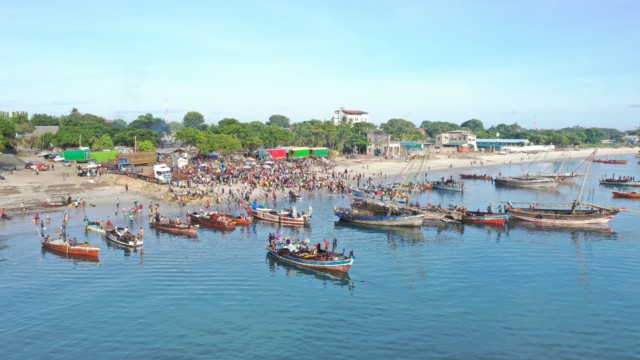Tanzania: Locating profitable fishing grounds in East Africa

The Tanzania Fisheries Research Institute is improving local fishing techniques using Earth Observation data and GNSS technology.
The Tanzania Fisheries Research Institute
The Tanzania Fisheries Research Institute (TAFIRI) was established in 1980s to promote, coordinate, and conduct research on fisheries in Tanzania. TAFIRI operates under the Ministry of Agriculture, Livestock and Fisheries.
TAFIRI is one of the partners of the East Africa Marine Consortium, created within the GMES and Africa initiative. The consortium is led by the Mauritius Oceanographic Institute (MOI) and it includes the Kenya Marine and Fisheries Research Institute, the Institute of Fisheries and Marine Sciences of Madagascar, the Seychelles Meteorological Authority, and the Western Indian Ocean Marine Science Association. The project implemented by the consortium aims at seizing the biological and physical state and dynamics of the ocean, fishing grounds, marine ecosystems for the regional seas, coastal vulnerability, and sea state forecasts, to support marine and coastal management activities and adaptation measures in the East Africa Region.
The challenge
 A quarter of Tanzania’s population heavily depends on fishery for economic purposes and food. Fishery contributes for about 1.4% of the national GDP and represents an important source of work, employing over 180,000 people, and 19,000 in fish farming.
A quarter of Tanzania’s population heavily depends on fishery for economic purposes and food. Fishery contributes for about 1.4% of the national GDP and represents an important source of work, employing over 180,000 people, and 19,000 in fish farming.
Due to climate change-related effects and overfishing, coastal fishery is slowly declining, threatening local communities and the economy. Furthermore, pelagic fish stocks are mostly unexploited, due to very limited means and tools, and to a lack of knowledge on how to locate fishing grounds in offshore waters. Artisanal fishers are mostly dependent on inshore fishing grounds and would need support to access profitable fishing areas offshore.
The satellite solution
Within the framework of the GMES and Africa programme, TAFIRI started a collaboration with local fishing communities in the areas of Fundo (Pemba), Nungwi (Zanzibar), Kipumbwi (Tanga), and Kilindoni (Mafia). The aim was to raise awareness on the uses of EO and GNSS data to identify profitable fishing areas, with the final objective of helping local communities to optimise their resources.
TAFIRI, together with local fishery authorities, trained more than 100 ring-net fishers on the use of satellite navigation to track local fishing grounds and develop new safe fishing techniques. Fishermen were given mobile phones with a dedicated app to collect fisheries information. The app includes an SMS alert system, thanks to which the fishermen receive the coordinates of potential fishing zones, as well as data on water quality and temperature derived from Copernicus Sentinel-2. Once leaving the coast, fishermen activate the GNSS signal and check on the app the vessel’s course to reach the identified fishing station. During the trip, fishermen can also include new information, thus validating the satellite data and including additional information collected during their navigation.
The results
The use of satellite data to improve fishery techniques and to guarantee a sustainable fishery is bringing a series of benefits to local fishermen and responsible authorities. The information captured is used by the government to improve fisheries management plans for small and medium species (e.g., sardines) along with large pelagic fish (Tuna and tuna like species) in the coastal waters of Tanzania. The system based on EO and GNSS data helps reducing fishing pressure on inshore waters and provides reliable information to fishermen.
Also, the system is encouraging artisanal fishermen to adopt innovative techniques that could reduce fishing costs and make fishery a safer job. Indeed, the app guarantees to the fishermen the possibility of working without risking their lives due to outdated maps or inadequate data on water and weather conditions. The use of satellite technology to optimise fishery is preserving the marine ecosystem and is helping to implement new policies and fishing strategies for the development of the country, while improving the livelihood of the fishers.

